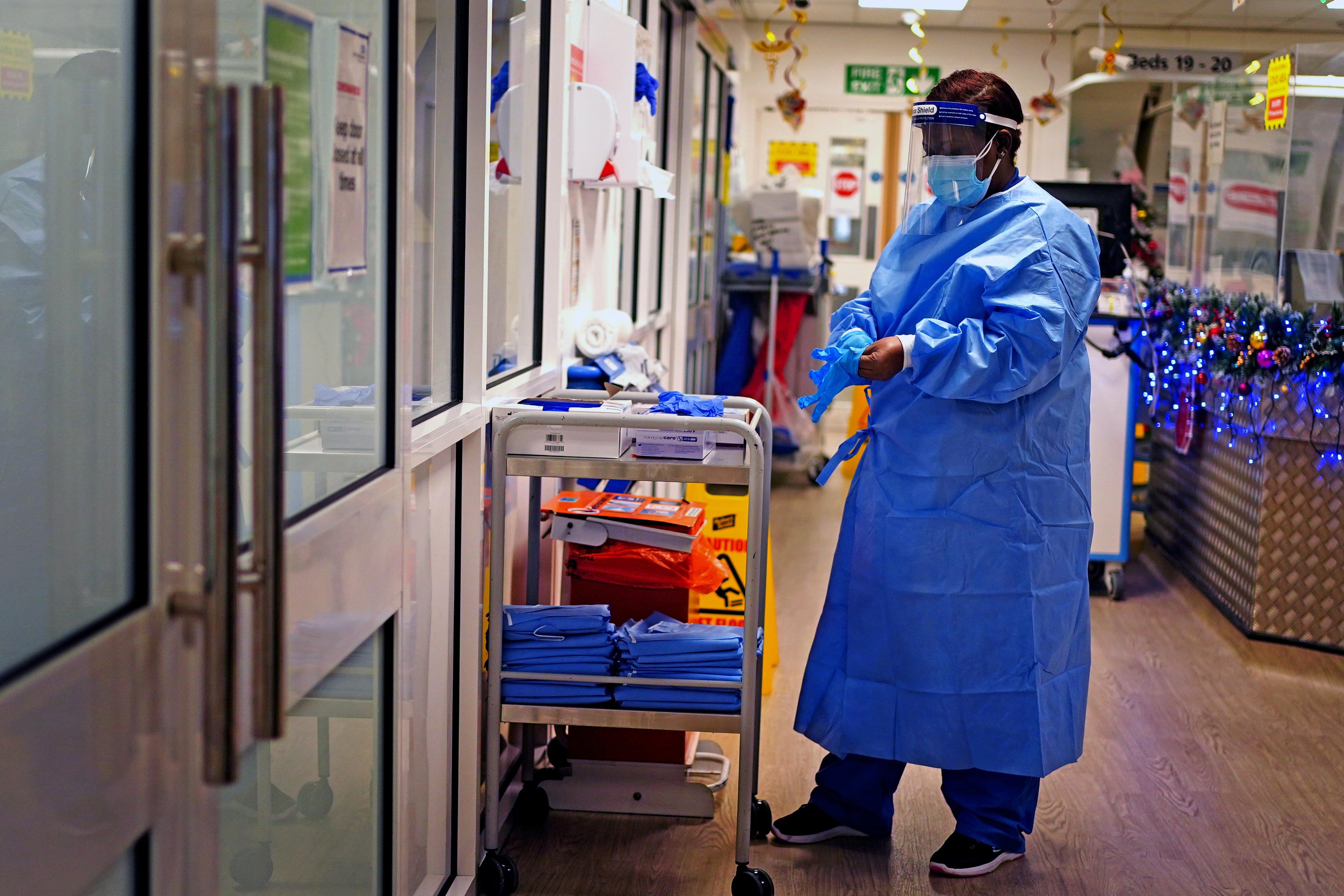NHS hospital staff absences through Covid quadruple in London, data shows
Absences at NHS hospitals in the capital rose from 1,174 at the start of December to 4,580 by Boxing Day.

Your support helps us to tell the story
From reproductive rights to climate change to Big Tech, The Independent is on the ground when the story is developing. Whether it's investigating the financials of Elon Musk's pro-Trump PAC or producing our latest documentary, 'The A Word', which shines a light on the American women fighting for reproductive rights, we know how important it is to parse out the facts from the messaging.
At such a critical moment in US history, we need reporters on the ground. Your donation allows us to keep sending journalists to speak to both sides of the story.
The Independent is trusted by Americans across the entire political spectrum. And unlike many other quality news outlets, we choose not to lock Americans out of our reporting and analysis with paywalls. We believe quality journalism should be available to everyone, paid for by those who can afford it.
Your support makes all the difference.NHS hospital staff absences due to Covid have nearly quadrupled in London since the beginning of December, new figures show.
A total of 4,580 NHS staff at hospital trusts in London were ill with coronavirus or having to self-isolate on Boxing Day, up 18% on the previous week and nearly four times the 1,174 at the start of the month.
The new figures from NHS England published on Friday, also show that the number reached as high as 5,994 on December 23, but has fallen over Christmas Eve to Boxing Day.
While London has seen the steepest growth since the start of the month, other regions have seen bigger percentage increases than the capital in the most recent week.
The north west of England saw a week-on-week rise of 55% from 2,558 on December 19 to 3,966 on Boxing Day, while Covid absences rose by 43% in the North East and Yorkshire over this period.
The South West had the lowest percentage increase, up 13% week-on-week from 1,682 to 1,898.
At Sheffield Teaching Hospitals trust, 1,144 staff were absent for Covid-19 reasons on December 26, up from 699 on December 19, while Manchester University trust reported 835 absences, up from 548.
Other trusts with steep jumps in Covid-19-related absences include University Hospitals of Leicester (522 on December 26, up from 356 a week earlier), Nottingham University (791, up from 658) and Leeds Teaching Hospitals (502, up from 364).
The NHS England data also showed that of 13,480 hospital patients in England who were medically fit to leave on Boxing Day, 9,288 (69%) were still in hospital.
This is a slightly higher proportion than a week earlier, when 10,576 of 15,718 patients (67%) were still in hospital, though the number waiting to be discharged was lower.
The reasons for not discharging these patients will include a lack of space in care homes or ongoing discussions with local social services over levels of support.
Meanwhile, the proportion of patients waiting at least half an hour to be handed over from ambulance teams to A&E staff at hospitals in England fell last week.
A total of 11,088 delays of 30 minutes or more were recorded across all acute trusts in the week to December 26, representing 13% of all arrivals, according to the NHS England figures.
This is down from 20% of arrivals in the week to December 19.
Some 4% of arrivals last week (2,946) took more than 60 minutes to be handed over to A&E teams, down from 7% in the previous week.
A handover delay does not always mean a patient has waited in the ambulance. They may have been moved into an A&E department, but staff were not available to complete the handover.
NHS Providers chief executive, Chris Hopson, said the figures confirmed a “worrying spike” in staff absences.
He added: “This is the biggest immediate challenge for trusts as they deal with the surge in Omicron cases together with continuing pressures on emergency care, urgent planned care that cannot be delayed any longer and the ongoing vaccination programme.
“In that context, it is reassuring to see bed occupancy levels stabilising, albeit at a high level.
“And there has been some progress in ensuring patients are discharged promptly when they are medically fit to return home or to other community settings.
“That reflects effective collaboration between trusts and partners across health and care in the face of continuing severe pressures.”